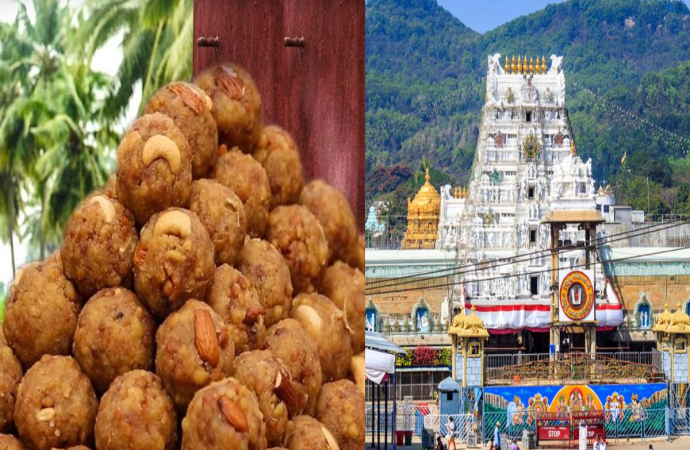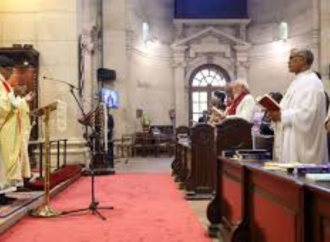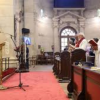Overview A controversy has emerged regarding the ingredients used in the laddus offered as prasadam at the Sri Venkateswara Swamy Temple in Tirumala, Andhra Pradesh. Nara Lokesh Naidu, national general secretary of the ruling Telugu Desam Party (TDP) and state minister, has claimed that laboratory tests indicate the presence of fish oil and cow fat
Overview
A controversy has emerged regarding the ingredients used in the laddus offered as prasadam at the Sri Venkateswara Swamy Temple in Tirumala, Andhra Pradesh. Nara Lokesh Naidu, national general secretary of the ruling Telugu Desam Party (TDP) and state minister, has claimed that laboratory tests indicate the presence of fish oil and cow fat in the ghee used for the laddus.
Significance of the Temple
The Tirupati Temple is one of the most revered Hindu pilgrimage sites, attracting thousands of devotees daily. The laddus, distributed as prasadam, are considered sacred and hold significant spiritual value among worshippers.
Political Reactions and Allegations
Following Chief Minister Chandrababu Naidu’s claims about the ghee’s contents, political tensions have escalated. The Bharatiya Janata Party (BJP) accused the Congress-led government in Karnataka of interfering in temple affairs and compromising the quality of prasadam.
Gowardhan Reddy, a former minister from the YSR Congress Party, countered these allegations, asserting that the temple’s executive officer indicated that vegetable oil, rather than animal fat, is used in the laddus. He suggested that the controversy is a distraction from the government’s handling of recent floods in the state.
Verification of Ingredients
In response to the accusations, the ruling TDP asserted that a livestock laboratory in Gujarat confirmed the adulteration claims. Anum Venkata Ramana Reddy, the party spokesperson, released lab reports stating that samples of ghee provided by the Tirumala Tirupati Devasthanam management contained fish oil and cow fat. Nara Lokesh emphasized that these findings were alarming and warranted further investigation.
Demand for Accountability
The BJP has called for legal action against those responsible for the alleged adulteration. K. Lakshman, president of the BJP’s OBC Morcha, expressed that the use of cow fat and fish oil in sacred laddus is a direct affront to the cultural and religious sentiments of Hindus.
Deputy Chief Minister Poon Kalyan announced that the state government would take strict measures regarding these allegations. He also proposed forming a national-level “Sanatan Dharma Rakshan Board” to address temple-related issues throughout India.
Production of Laddus
The Tirupati Temple produces approximately 350,000 laddus each day, with each laddu costing about 40 rupees to make. The preparation process requires significant quantities of ingredients, including 400-500 kilograms of ghee, 750 kilograms of cashews, 500 kilograms of raisins, and 200 kilograms of cardamom daily.
The Tirumala Tirupati Devasthanam Board manages the temple and regularly issues tenders for ghee supply, purchasing around 500,000 kilograms annually.
Conclusion
The ongoing controversy surrounding the ingredients used in the Tirupati Temple laddus highlights the intersection of religion and politics in India. As the situation develops, calls for transparency and accountability in temple management are likely to continue.

















Leave a Comment
Your email address will not be published. Required fields are marked with *